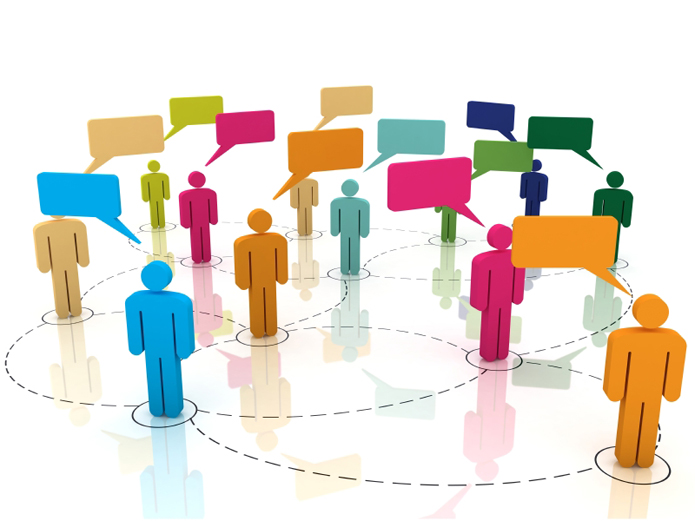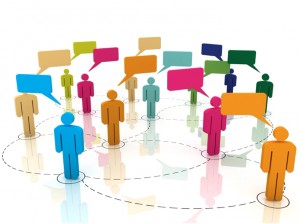Networking: Give other people value and win power and influence


The way we communicate often decides how big a slice of the cake we get. Does this seem a bit exaggerated? That may well be the case, but it does not make it less true. Moreover, the more you spend and the more you become an empathetic and intelligent communicator – the more people will allow you to obtain power and influence!
The right to power, influence and opportunities is not a right you possess or take: It is a right other people will have to grant you. Imagine a presidential election where a candidate – in order to become president – has to please the voters and give them an unambiguous feeling that he can improve their living conditions. In your own world, you also have to please people before they allow you to go through with your plans. Your success depends on whether you have an attitude that your surroundings find useful to honour. If you do, they are going to support and open doors to you.
But exactly what kind of attitudes can pave the way for you to become an attractive person whose wishes will come true?
1. Make room for your conversational partner
When trying to contact another person, many people make the mistake of talking a lot about themselves, their products or their business. Funnily enough, most people are aware that it feels wrong – but end up doing it anyway! Moreover, if there is something that does not work these days, it is that kind of communication!
Of course, it is perfectly fine to introduce yourself, but after that, it is of paramount importance to take a sincere interest in your conversational partner. Be a good listener and ask about your partner’s context and challenges. It pays off because very few people are used to being met with interest and curiosity. When you are seen, heard and met with genuine understanding, you will automatically feel in good company. The second advantage by communicating with the recipient’s perspective in mind is that you obtain useful knowledge, too – which may be of use in a later working relationship.
American behavioural psychologists have documented that the best sales figures are reached when we listen 75 percent of the time and talk 25 percent. This knowledge is probably true of many other contexts, too, when your communication is goal-oriented.
Think of your communication in terms of the interests of the recipient. This creates goodwill, whereas the opposite is a waste of time!
2. Value comes from “social indebtedness”
Good communication is about “social indebtedness”. You have to treat somebody to something and create a favourable situation for the person you want to be your business relation. When you give somebody something, this person will in most cases feel flattered and obligated to repay your service.
You can hand out many different things:
- Your knowledge, which the recipient may use to further develop his skills, earn more money or gain higher status.
- Good contacts – which can be used to make new acquaintances and cooperative relationships or to establish a more favourable position on the job market.
- Your friendship and company
By receiving these services, you will be indebted to the giver, which means that the recipient will try to restore the balance in exchange.
It may sound cynical, but all of us already make use of that strategy. It is a fundamental mechanism in our DNA – a kind of survival instinct. The only difference is that as a skilful communicator you are aware of this function. So use it wisely, and do not abuse it!
The overlooked bonus in helping others
The moment you help another person, or do that person a favour, your brain releases the transmitter substance Dopamine, a substance that is released when you do something that is related to a sense of well-being. So helping others is a win-win situation – for you as well as the person who has a positive experience.
It is all about giving people something – because influence is gained by supplying people with value. When they feel kindly treated and are grateful that you helped them on to something better, you will receive their knowledge and helpfulness in the future. Basically, it is a number of constructive exchanges of services – and your most precious insurance in your life and your business.
Social indebtedness should not be considered in terms of complete fairness down to the minutest detail. Some people will be able to repay because they have the ability to do that, while others may have a harder time doing so. But give other people value – it is well worth the effort!
About the author: Simone Lemming Andersen has an MA in Communication and is a journalist and a writer. She has written two bestselling books on networking and gives talks all over the world. More on www.strategisk.dk or call +45 26161818. She has recently published the second edition of the eBook “Networking“ on bookboon.com.




